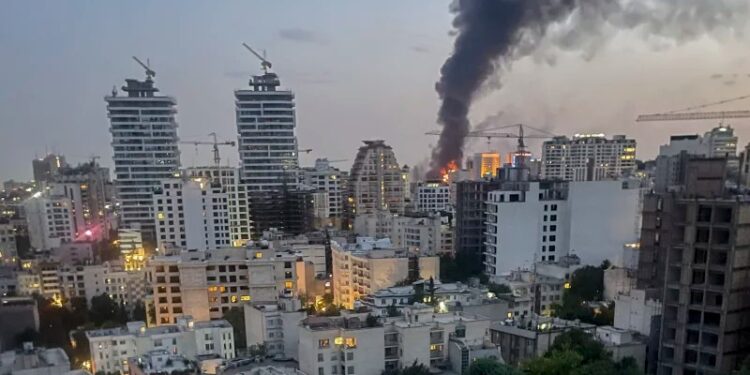Tensions in the Middle East have escalated dramatically following the United States’ bombing of Iranian nuclear sites, prompting swift reactions from Israel, the European Union, and major global powers. The situation remains volatile, with fears of a wider regional conflict and mounting uncertainty over diplomatic and military intentions.
The US strike on Iran’s nuclear infrastructure last week, reportedly aimed at halting further uranium enrichment, has significantly raised the stakes in an already fragile geopolitical landscape. While the White House has issued carefully worded statements, former President Donald Trump has taken a far more aggressive tone, now openly calling for regime change in Tehran. His remarks have divided American lawmakers, with Democrats warning of escalation and Republicans largely backing the show of force.
In Iran, the regime has condemned the attack as a “blatant act of war,” vowing retaliation and mobilising military units around key strategic sites. While direct counterattacks have not yet materialised, Iranian proxy groups in Lebanon, Syria, and Iraq have increased their operations, heightening risks for US personnel and allies in the region. Iran has also reportedly sent unmanned drones and missile systems to its allies in Gaza and southern Lebanon, raising concerns about further destabilisation.
Israel, for its part, has remained on high alert. The Israeli Defence Forces (IDF) have intensified operations near the northern border and bolstered air defences in anticipation of retaliatory strikes. Prime Minister Benjamin Netanyahu has refrained from confirming Israeli involvement in the recent escalation but has reiterated the country’s right to self-defence. Tel Aviv has also begun preparing emergency infrastructure in the event of large-scale conflict, including civilian mobilisation protocols.
The European Union has issued strong calls for restraint, urging both the US and Iran to return to diplomatic channels and avoid further military action. France and Germany in particular have expressed concern over nuclear non-proliferation and the risk of a collapsed regional security framework. EU High Representative Josep Borrell described the situation as “perilously close to a point of no return.”
In Moscow, the Kremlin has sharply criticised the US action, accusing Washington of fuelling instability and undermining international law. Russia has convened an emergency session at the United Nations Security Council, warning that any further escalation could trigger widespread humanitarian consequences. China has echoed similar concerns, calling for “mutual de-escalation and responsible diplomacy.”
Oil markets have reacted sharply, with Brent crude briefly spiking above $90 per barrel before stabilising. Analysts warn that further unrest in the region could disrupt global supply routes, particularly through the Strait of Hormuz. Gold has also surged as investors seek safe havens, while equity markets have shown signs of stress amid broader uncertainty.
Meanwhile, regional populations across the Middle East are bracing for impact. Civil society groups in Iran, Iraq, and Lebanon have voiced fears of conflict spilling over into civilian areas, with hospitals and supply chains already stretched from years of instability.
Diplomatic backchannels remain open but fragile. Reports suggest indirect talks are ongoing between US and Iranian representatives via mediators in Oman and Qatar, but trust is limited and objectives diverge. The coming days are seen as critical for determining whether the world will inch closer to war — or begin charting a course back from the brink.
newshub finance



Recent Comments